When is a football manager ‘past it’?
A manager’s time at the top of the game has a finite period, Miguel Delaney examines the factors that contribute towards longevity and how to stop the game passing you by

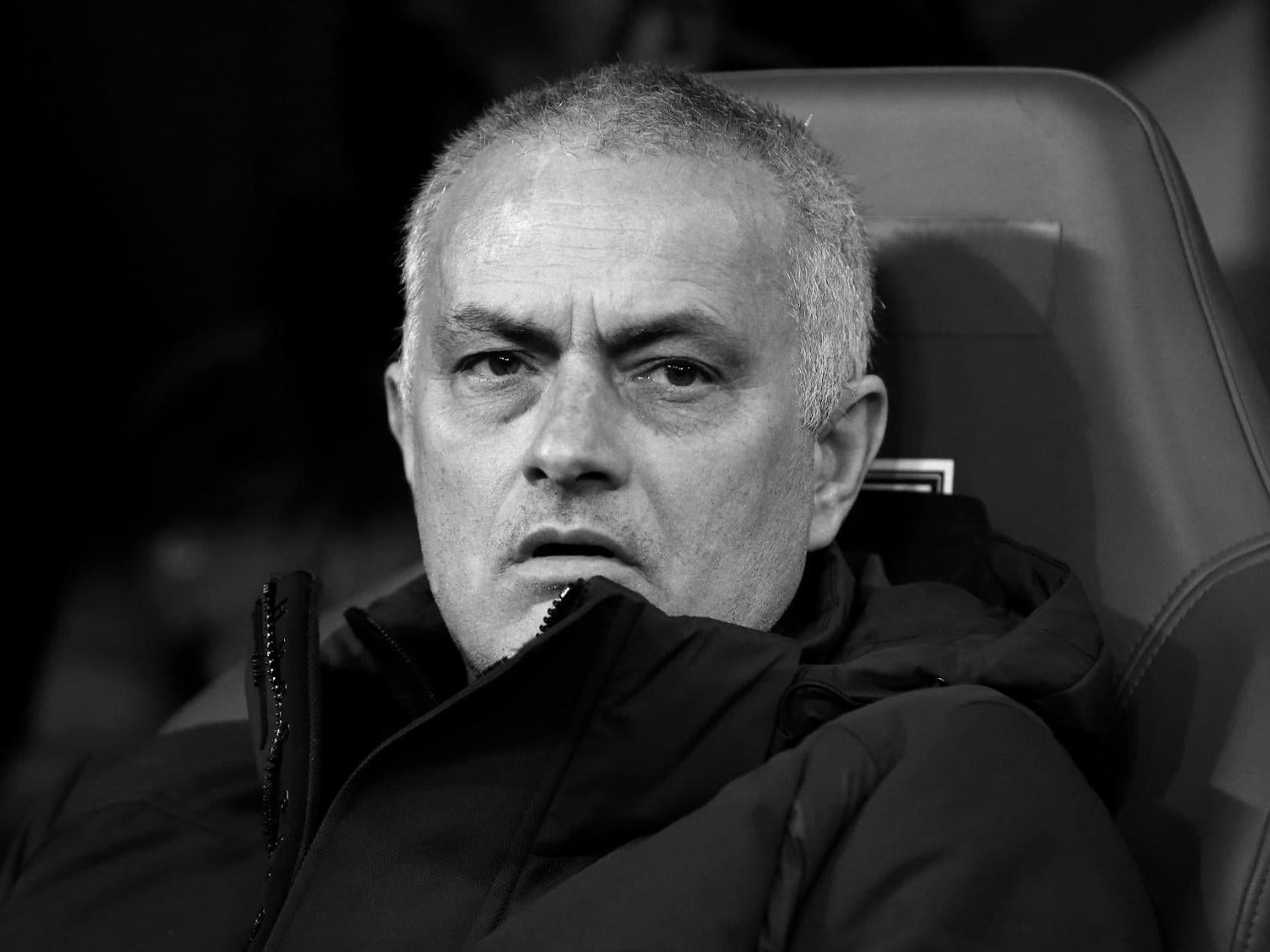
Your support helps us to tell the story
From reproductive rights to climate change to Big Tech, The Independent is on the ground when the story is developing. Whether it's investigating the financials of Elon Musk's pro-Trump PAC or producing our latest documentary, 'The A Word', which shines a light on the American women fighting for reproductive rights, we know how important it is to parse out the facts from the messaging.
At such a critical moment in US history, we need reporters on the ground. Your donation allows us to keep sending journalists to speak to both sides of the story.
The Independent is trusted by Americans across the entire political spectrum. And unlike many other quality news outlets, we choose not to lock Americans out of our reporting and analysis with paywalls. We believe quality journalism should be available to everyone, paid for by those who can afford it.
Your support makes all the difference.Last year, the hierarchy of one big club were discussing their next manager, and a big name was suggested. It was dismissed quickly, and curtly.
“He’s past it,” came the words of one influential director.
It’s a comment everyone in football has made, and some managers have said about each other. Jose Mourinho basically said it about Arsene Wenger back in 2014. Life comes at you fast, it’s said, but it doesn’t move as fast as football. That’s pretty much the point.
The way in which the game leaves managers behind is hard to specify, but it’s clearly real. That’s how a European Cup winner like Giovanni Trapattoni can end up managing Ireland. That’s how Mourinho can find himself at Tottenham Hotspur, and Carlo Ancelotti at Everton. It’s why simply pointing to CVs doesn’t really cut it.
Managers suddenly find they’re not being sought for the top jobs, because they’re not quite winning the top trophies to the same degree, perpetuating a gradual slide.
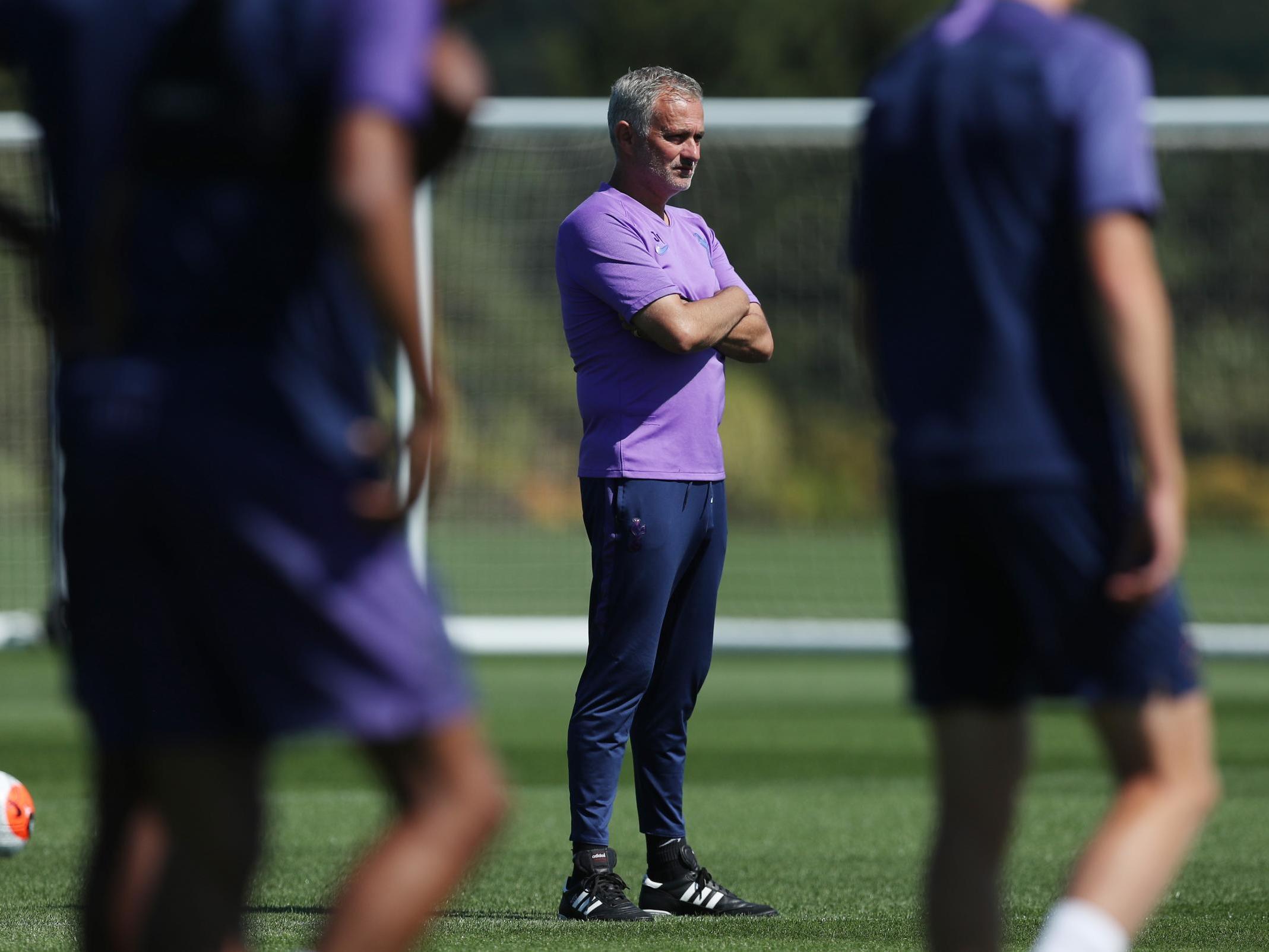
It is those top trophies that also ensure – with a bit of historical remove – you can actually calculate how long spells at the top tend to be.
The average, The Independent can reveal, is 12.3 years.
That figure comes from an assessment of the careers of all Premier League winning-managers and Champions League finalists. It actually logically fits with the reality that careers tend to be about 30 years, and generally come in three stages: rise, peak, decline.
It is that peak that is key here, and really just involves the time between an individual’s first top-level success and their last. A “top-level success” isn’t even that subjective, and is obviously a trophy like a major domestic title or Champions league, or an outstanding feat with a lesser club – like, say, winning a Uefa Cup with FC Porto.
As an example, consider Brian Clough, who started his managerial career in 1965. He had his first major success in 1971-72, with Derby County’s league title, and his last with Nottingham Forest’s 1980 European Cup. Clough still won trophies over the next 13 years, but never to the same level. It could fairly be said his time at the top was nine years.
For Arrigo Sacchi, it was a mere seven years. Bill Shankly was 10 years; Kenny Dalglish 10; Jock Stein 11; Vicente Del Bosque 12; Fabio Capello 16; Matt Busby 17; Wenger 19.
That average from over 50 managers, of various career profiles, works out at 12.3.
If you want to have a bit of fun with it, Pep Guardiola is currently at 11 years, Jurgen Klopp at 10, while there is an argument that Mourinho’s stopped at 13 (2002 to 2015) and Ancelotti’s at 15 (2002 to 2017).
That clearly isn’t to say that Guardiola or Klopp will start careening in the next two years. The variety of careers indicate there is obviously a lot more to it than age or just hitting a fixed point.
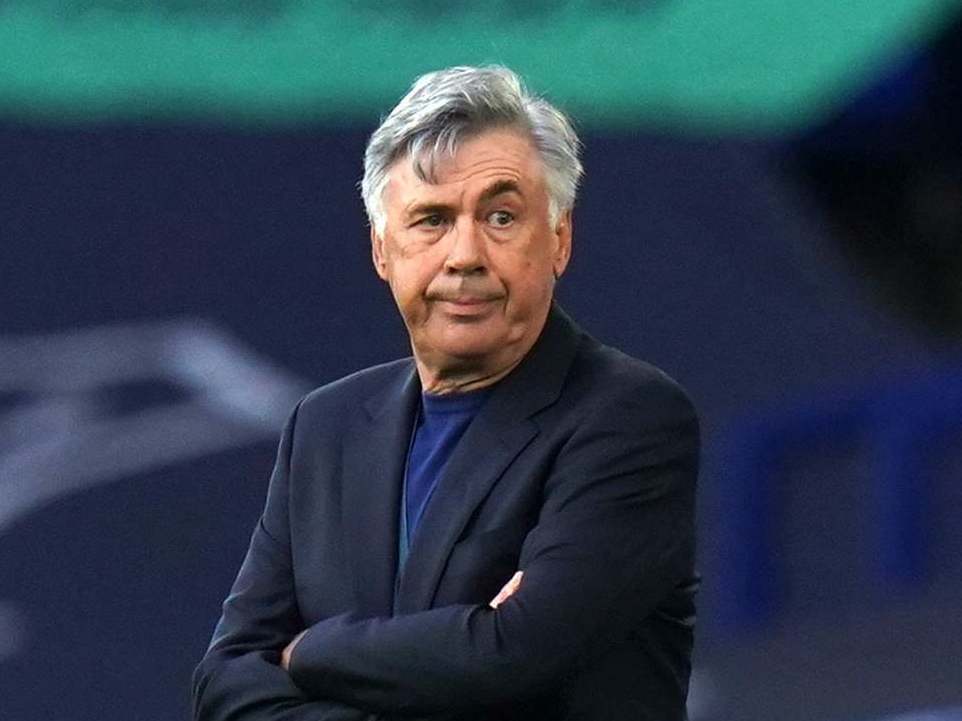
It isn’t about fighting against an imaginary managerial “clock in the sky”, but keeping up with tangible changes in the game.
Managers manifestly dictate these. The best are obviously very bright people, blazing with ideas that challenge and upend existing orthodoxies, especially when young.
The history of football can be traced through them. Nereo Rocco spread the defensive Catenaccio by winning the European Cup with Milan in 1962, before Stein smashed it with Celtic, and then Rinus Michels’s Ajax took the game to a totally new level with Total Football. Opposition sides just couldn’t cope with their pressing, which was a revolutionary idea beyond what anyone else could register. That’s how the game really moves. But only for a time.
Even that passed, as other managers adapted, and figured out solutions that prompted further shifts. Pressing wasn’t so visible in the 1980s, until Sacchi re-interpreted and enhanced it for his era, before Guardiola did the same for the modern age.
All of this is further influenced by evolutions in sports science and psychology, which managers have to keep further abreast of.
“Everything in football has been invented, but there is a trend in how you use things,” Roberto Martinez tells The Independent. “I think the application and the execution, they are in constant evolution, and you have to be prepared to move along with them.”
This is crucial. A good idea – to paraphrase another declined leader in David Brent – isn’t a good idea forever. What worked so well 10 or 15 years may not work as well now. The context may have changed.
This was what Sir Alex Ferguson understood to a greater level than anyone else, which is precisely why he had a top-level career far longer than anyone else: 34 years. The next best is probably Jupp Heynckes, at 30.
Crucially, you couldn’t really say Ferguson had a grand tactical idea that defined him. This is probably what differentiated him. Any time Ferguson failed, he looked at why, incorporated it and improved on it. This was the approach he took from virtually all of his rivals, from the sports science of Wenger to the pressing of Marcello Lippi’s Juventus.
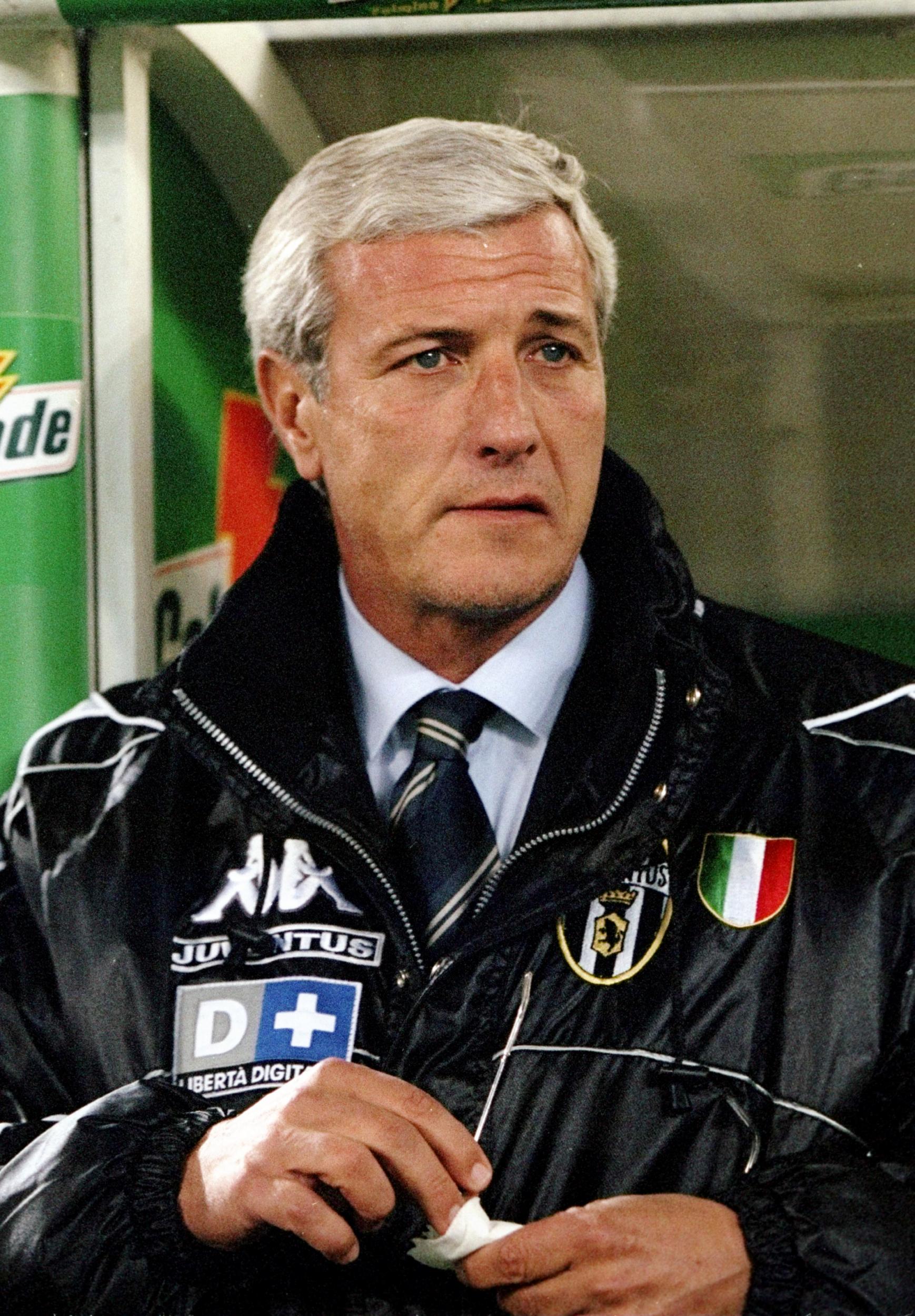
Such adaptability is really an influential quality in itself, but thereby one beyond most managers.
It may be especially beyond true revolutionaries and ideologues. There is an obvious logic to that, too.
They come into the game with a big idea that proves influential and defines them… and get wedded to it. That happens in fields way beyond football.
It may well be why Sacchi only lasted seven years at the top, and Johan Cruyff eight.
Their peak may actually be higher, because the nature of their ideology brings a more intense level of application – see the ‘Dream Team’ or Barcelona 2008-11 – but that ideology is itself dependent on a moment in time. Once the game starts to react, and shift, they struggle to shift with it. They’re far too connected to their initial idea.
It’s probably true that there’s a stretch where managers have a greater energy, a ferocious hunger before achievement naturally starts to sate them.
Prominent figures within the game say they have recognised similar in Mourinho, Wenger and Rafa Benitez.
That isn’t so much about ideology, however, as pride.
They don’t get wedded to tactical ideas as much as the idea of proving themselves right; that what they do can still work. It happened over and over again with Wenger. It now looks like it might be happening over and over again with Mourinho.
We’re seeing the same trends.
Whether Klopp and Guardiola succumb to the same problem remains to be seen. What is true, though, is both have already adapted ideas of the other. Klopp has visibly incorporated more possession; Guardiola more direct play and German pressing.

They’ve undeniably contributed to the game being played at a faster level than ever before, and evolving at a faster level than ever before.
“It’s a fact that footballers are faster, the number of actions in a football game higher than 20 years ago, so everything is more than 20 years ago,” says Jose Gomez, former Reading manager. “The physicality of our football is no doubt higher than before, too.
“So you must be permanently adapting. You have to study more than ever. You must adapt. But, before that, you must feel open to adapt.
“Because, if you include your ideas you love, that you don’t want to lose – and you don’t care about what kind of players you have, and don’t ask if these players can fit my ideas or should I adapt – you are a dead manager, no chance.”
It’s the only way to stop the game passing you by.
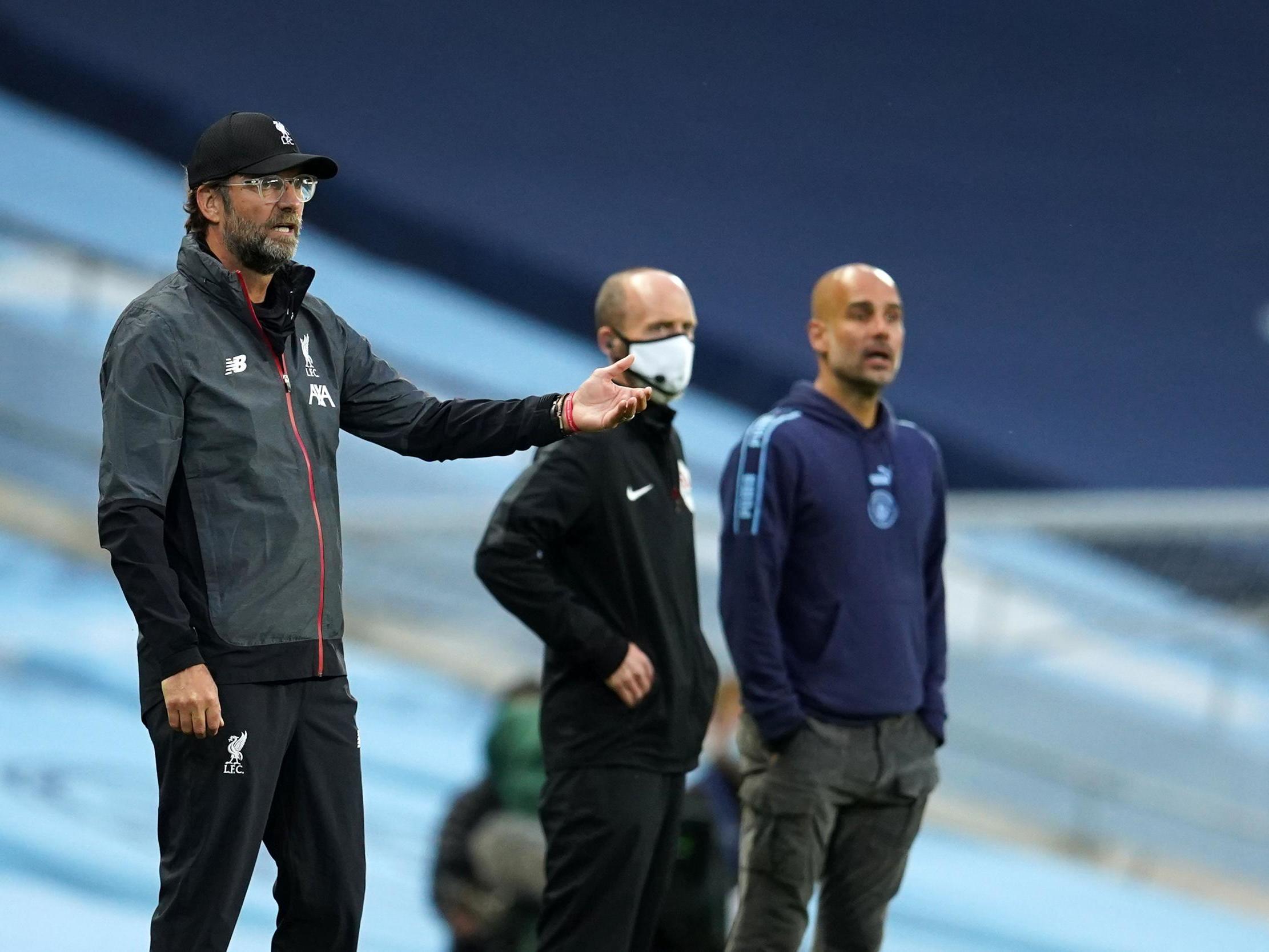
Peaks of selected top managers
(Span – First major success – Last major success)
Sir Alex Ferguson 34 years 1979-80 2013
Jupp Heynckes 30 years 1988-89 2018
Giovanni Trapattoni 21 years 1986-97 1997
Louis van Gaal 19 years 1991-92 2010
Guus Hiddink 19 years 1986-87 2005
Sir Matt Busby 17 years 1951-52 1968
Fabio Capello 16 years 1991-92 2007
Ottmar Hitzfeld 14 years 1994-95 2008
Ernst Happel 14 years 1969-70 1983
Marcello Lippi 12 years 1994-95 2006
Jock Stein 11 years 1966-67 1977
Kenny Dalglish 10 years 1985-86 1995
Bill Shankly 10 years 1963-64 1973
Brian Clough 9 years 1971-72 1980
Johan Cruyff 8 years 1986-87 1994
Bob Paisley 8 years 1975-76 1983
Arrigo Sacchi 7 years 1987-88 1994
Sir Alf Ramsey 7 years 1961-62 1968
George Graham 6 years 1988-89 1994
Don Revie 6 years 1968-69 1974
Join our commenting forum
Join thought-provoking conversations, follow other Independent readers and see their replies
Comments